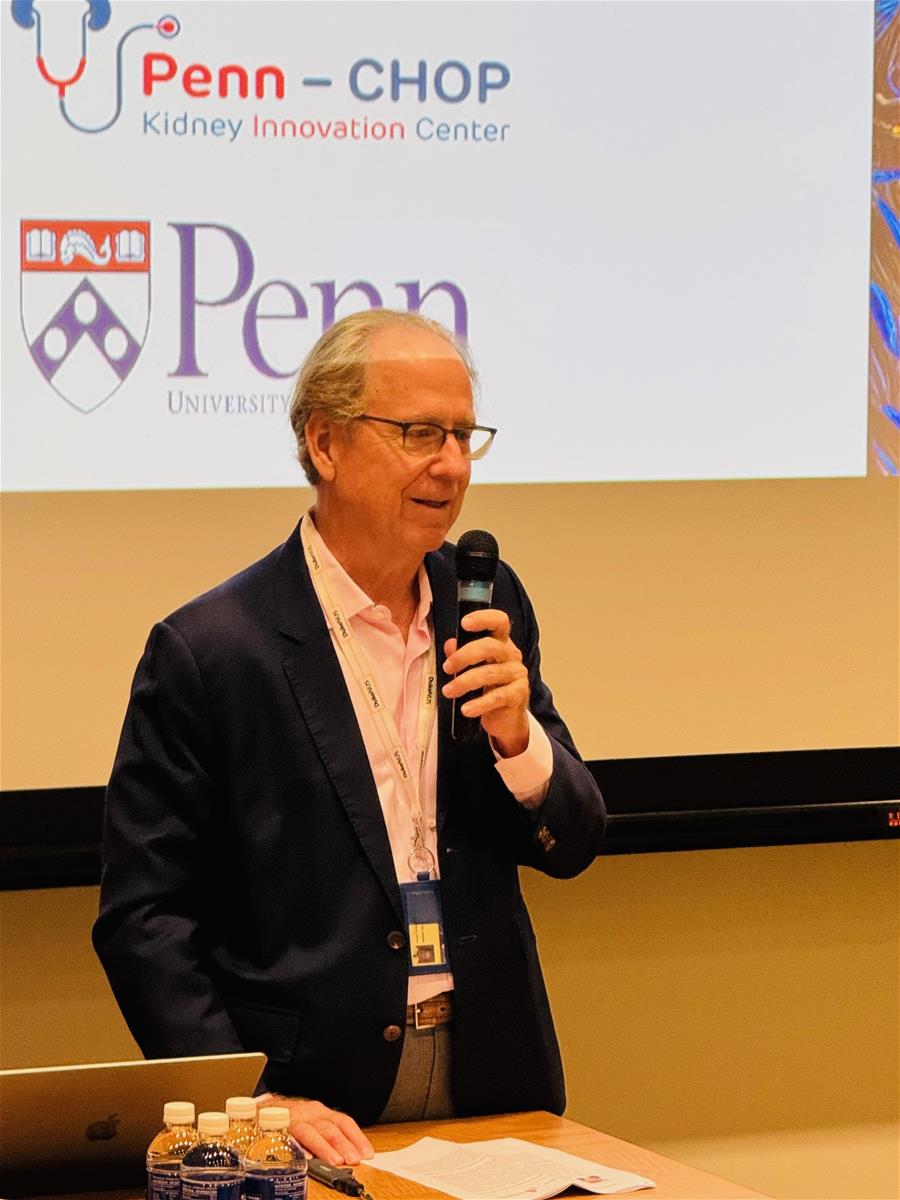By 2050, more than 853 million people worldwide will be living with diabetes, and up to 40 percent of them could face a life-altering complication: diabetic kidney disease. With no cure and significant health burdens, the disease demands urgent attention—making it the focus of a high-level symposium at Duke-NUS on 7 August.
 Dean Professor Thomas Coffman delivers his opening remarks
Dean Professor Thomas Coffman delivers his opening remarks
The DYNAMO (the Diabetes StudY in Nephropathy And other Microvascular cOmplications), an NMRC-funded national research initiative was founded under Duke-NUS Dean Professor Thomas Coffman’s leadership and targets the prevalence of diabetic kidney disease. Organised as part of DYNAMO, the symposium brought together global experts from its scientific advisory board who shared the latest developments in understanding and tackling this complex condition.
Expressing his gratitude to the advisory board, Prof Coffman said: “Their wisdom and advice has been a key to the success of DYNAMO, and for the recent successful renewal of the large collaborative grant funding supporting its research programmes, helping us move toward the goal of addressing the huge public health problem of chronic kidney disease and improve the plight of kidney patients in Singapore and beyond.”
From the micro to the macro
Following Prof Coffman’s remarks, the audience heard from Professor Katalin Susztak, Professor of Medicine and Genetics at the University of Pennsylvania.
Likening her research to the classic game of Clue, Prof Susztak explained how she works as a detective to identify the genes, mechanisms and cell types responsible for kidney disease by mapping the genes associated with kidney function.
To further understand the disease, her team has used genetics, transcriptomics and metabolomics to create a detailed atlas of healthy and diabetic kidneys. Like a comprehensive map, the atlas has enabled them to identify specific cell lineages impacting kidney functions, providing crucial insights that will guide future treatments.
Moving beyond the lab, Professor Nick Wareham, Director of the MRC Epidemiology Unit and co-Director of the Institute of Metabolic Science at the University of Cambridge, challenged attendees to broaden their perspective, urging the audience to consider the problem of diabetes and its complications beyond treating it solely as a medical problem.
He further emphasised the need to consider both clinical and public health approaches in the management of the disease and discussed the potential for personalising prevention by identifying subgroups of patients. His presentation also spoke about the gaps between research and policy—how laboratory results may not always translate easily into addressing public health concerns.
Exploring potential therapeutic options
With a clearer picture of the disease in hand, the discussion switched gears to focus on the next crucial step: therapeutic options.
Professor Mark Cooper, Head of the Department of Diabetes in the Central Clinical School at Monash University, gave a broad overview of the potential role of a new class of agents in managing diabetic kidney disease, focusing on the emerging group of GLP-1 agonists. Elaborating on the results from clinical studies, Prof Cooper explained how these agents, which target a particular class of receptors resulting in dramatic weight loss and improved diabetes control, also exert a protective effect on the kidney through mechanisms that have not been completely defined.
This was followed by Professor Peter Rossing, Clinical Professor at the University of Copenhagen and Head of Complications Research at the Steno Diabetes Centre, who spoke about the challenges of implementing the results from clinical trials in clinical practice. In addition to presenting the data from recent clinical trials, Prof Rossing highlighted the need to consider personalised treatment approaches, as well as the potential for combining multiple drugs to enhance efficacy and reduce side effects.
The symposium offered a broad overview of the current state of the field in research on diabetic kidney disease. From molecular genetics to treatment efficacy to public health, the challenges and opportunities were well highlighted across the four presentations.
Pointing out the fact that all four speakers are accomplished clinician scientists, Prof Coffman said that their expertise mirrors the vision of Duke-NUS in nurturing clinician-scientists.
Added Prof Coffman: “You can see how their combined expertise in clinical medicine and cutting-edge research allows them to address these important questions in very powerful and incisive ways.”
The experts who led the symposium (L-R): Professors Nick Wareham, Katalin Susztak, Mark Cooper and Peter Rossing
Indeed, with the high incidence of diabetes as a cause of end-stage kidney disease in Singapore and its complex root causes, addressing this key public health problem requires bridging multiple gaps across clinical practice and research—a task that the DYNAMO group hopes to tackle through multi-disciplinary collaborations.
As the DYNAMO investigators look ahead to its next phase, their commitment is clear: to turn science into strategies that protect kidneys, improve lives and transform the outlook for millions of kidney patients worldwide.